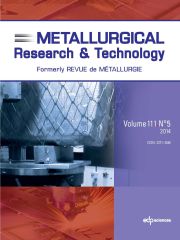Article contents
Dissipative application of lithium – lost for the future?
Published online by Cambridge University Press: 17 December 2012
Abstract
In recent years, lithium received increasing attention as lithium-ion rechargeablebatteries appear to be the most promising candidates for future electric vehicles. Severalstudies forecast a strong increase in demand most likely brought about with theimplementation of lithium-ion batteries in the automotive sector. Thus, the availabilityof lithium could be an important constraint for this emerging technology. Concerninglithium availability the future developments of supply and demand as well as the recyclingpotential play major roles. In respect of recycling it has to be distinguished in generalbetween dissipative and non-dissipative applications. As several studies (e.g. 1 G. Angerer, F. Marscheider-Weidemann, M. Wendl, M.Wietschel, Raw materials for emerging technologies: the case of lithium, Karlsuhe 2009)predict lithium recycling to play an important role for future lithium availability therecyclability of lithium in different applications has to be analysed for estimating thecontribution of lithium recycling to future supply.
Information
- Type
- Research Article
- Information
- Metallurgical Research & Technology , Volume 109 , Issue 5: Social Value of Materials , 2012 , pp. 341 - 347
- Copyright
- © EDP Sciences 2012
References
- 3
- Cited by

